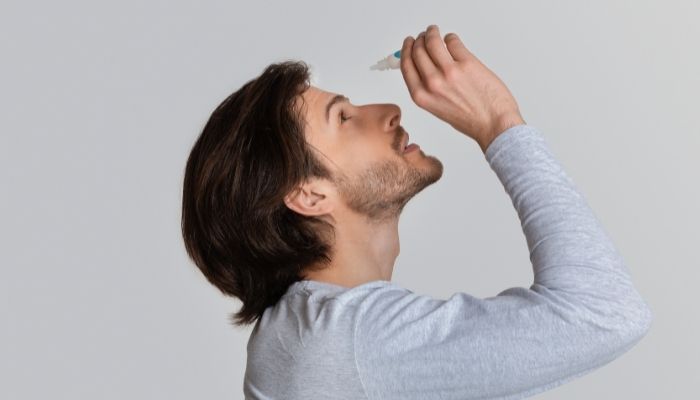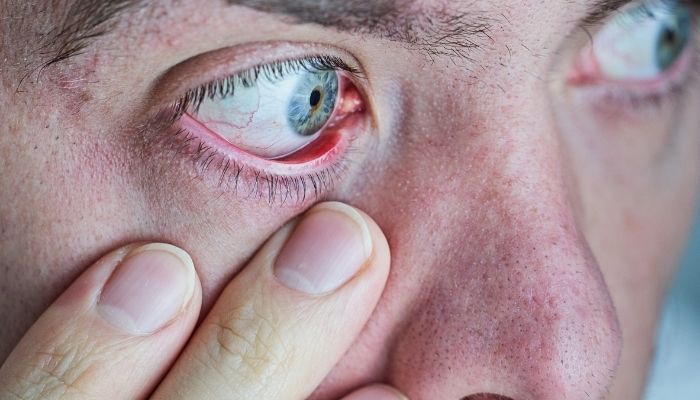Dry eye syndrome, as the name suggests is a condition where your eyes are dry because the tear production is less or the tear dries up quickly. It is not a rare condition and can be easily found in several human beings, as well as in animals. A recent study conducted in the United States revealed that more than 15 million people are affected by dry eye syndrome. Getting treatment for this disease is not difficult. However, to get the right treatment, diagnosing the main cause is important.
There are several dry eye symptoms to watch out for to understand the main cause of this eye disorder.
Let us dig deeper to know about dry eyes and what are the latest eye drops for dry eyes?
Common Symptoms of Dry Eye Syndrome
Following are some commonly experienced dry eye symptoms- Burning sensation or soreness in the eyes
- Unable to tolerate the smoke or strong winds
- Reddish eyes
- Problems in keeping your eyes open
- Presence of mucus in and around the eyes
- Difficulty reading anything
- Extensive tearing from the eyes
- Feeling sensitivity to light
- Discomfort in wearing contact lenses
- Sticking together of eyes after waking up in the morning.
10 Common Causes of Dry Eye
Let us now understand the root causes of dry eye syndrome1. Age is the Factor
The problem of dry eye is experienced more by people who are more than 50 years. So, this suggests that age does play an essential role in contributing to this eye problem. With age, the eyes tend to produce fewer tears which eventually leads to dry eye syndrome.2. Deficiency of Vitamin A
Second evident cause for dry eye syndrome could be vitamin A deficiency. We have been taught in school that vitamin A is good for the eyes, so naturally, its deficiency may lead to eye problems like dry eye syndrome. You can confirm this cause by getting a blood test to detect vitamin A deficiency.3. Use of Computers
Another valid reason for many people to suffer from this eye disorder these days is the extensive use of computers. Working hours before the computer screen may lead to eyestrain and headaches. People often wink less when working on computers and this eventually dries their eyes leading to a dry eye syndrome.4. Wearing Contact Lenses
One common cause of dry eye syndrome is wearing contact lenses. People who wear these lenses for long hours are generally the ones who suffer from dry eye symptoms because some lenses hinder the excess of oxygen to your cornea.5. Prescribed Medicines
People on certain types of medications may produce less mucus and as a result experience dry eyes problem. If you are taking some prescribed medicines and experiencing dry eye, do consult your doctor about alternative medicine to get relief from dry eye syndrome.6. Laser Surgery
When talking about the main causes of dry eye, laser eye surgery could be another main reason. In this process, some nerves in the cornea are cut and it may lead to the production of fewer tears. As a result, facing the problem of dry eye is a bit common after laser surgery.7. Smoky Environment
Eyes are tender organs that cannot tolerate certain things, for instance, smoke. Exposure to too much smoke is found to be one of the common dry eye causes. Try to avoid smoky places to save yourself from this condition.8. Allergies
Similarly, many people experience discomfort in their eyes due to allergies to certain things. These allergies as a result may make one experience red, watery, and itchy eyes. If this condition worsens, it can lead to dry eyes too.9. Blepharitis
In blepharitis, the oil glands on the inner eyelid get clogged as well as inflamed leading to dry eyes. You can easily detect this eye disorder if you notice some oily flakes on or around your eyelashes.10. Menopause
In women, dry eye symptoms can also be experienced after menopause. It is because hormones play a big role in contributing to this condition. Some women also experience this syndrome while they are pregnant or using birth control pills. Hormonal imbalance may also lead to dry eye syndrome.4 Common Treatments for Dry Eye Syndrome
1. Artificial Tear Drops

People suffering from this eye problem may use artificial tears by using over-the-counter eye drops to lubricate their eyes with artificial tears.

